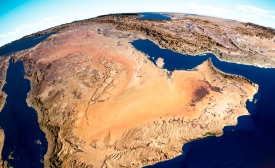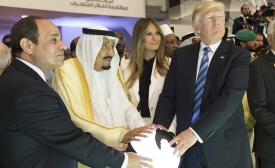gulf states

Season 2 of a podcast co-hosted by Nicholas J. Cull and Simon Anholt.

Mark Dillen on the negative image of President Trump's first trip overseas.
The Middle East remains of a major geostrategic importance. Global powers found in the recent developments an opportunity to chart their way into the region; sending troops and reinforcements, rebuilding alliances and restoring old relations. Amidst this chaotic environment, a number of regional forces opted to adopt a different approach: soft power.
Over the past decade the Arab world has witnessed a shifting of not only hard power -- which saw the traditional armies of the Arab world in Syria, Egypt and Iraq consumed in internal turmoil -- but also of what Harvard professor Joseph Nye termed "soft power," which has moved from these countries to the resource rich Gulf states.
Saudi Arabia and Qatar have reportedly plugged billions of dollars in arms over the course of the Syrian conflict, emerging as the main foreign powers bankrolling the revolt. But amid the West’s hesitation this week over launching a military strike to punish Syria’s President Bashar al-Assad, indicators suggest the Gulf states have been shooting blanks. Analysts now believe a portion of Gulf finances could have been better spent on a global anti-Assad/ pro-intervention public relations (PR) campaign.
The only power Egypt once has had is the "soft power," specifically the propaganda machine and translated literary production in the areas of humanities and social sciences. Again, Egypt lost their soft power to Gulf countries either in the fields of media or literary production, particularly to Saudi Arabia (MBC, Al Arabiya, and other media outlets), Qatar (Al Jazeera), and United Arab Emirates.
Here, the US, whose bilateral trade with the kingdom, had plunged in the aftermath of 9/11, has relied on cultural diplomacy to turn the tide in its favour. It has organised food festival, comedy night and arts exhibition featuring the works of both Saudi and American artistes







